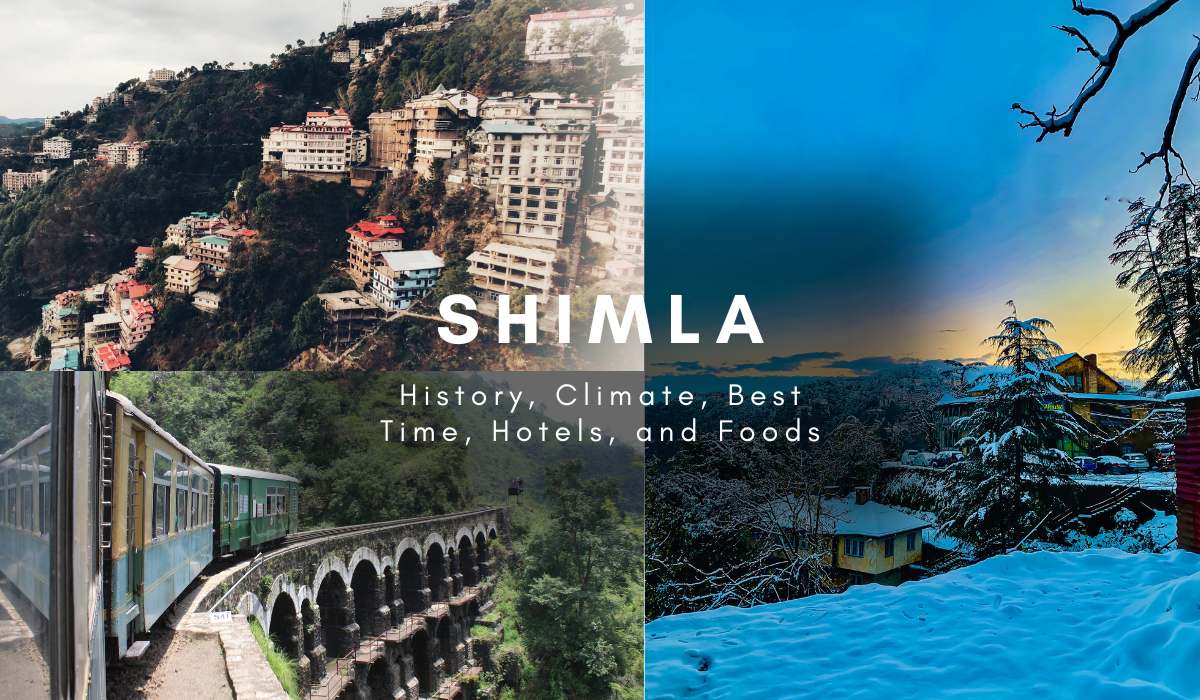Shimla is the beautiful city of Himachal Pradesh. It has a long past that goes back to the 1800s, when the British built it after the Gorkha War. It was the summer capital of British India and is tucked away in the Himalayas. The town’s grand old buildings, lovely lamp posts, and Anglo-Saxon names are all reminders of its colonial past. Plan your trip with Shimla Tourism for the best time, weather, and top attractions.
| Topic | Brief Overview |
|---|---|
| Introduction | May-June, December- January, romantic allure |
| Best Time to Visit | Pleasant weather (March- June), Snowfall (November-January), Monsoons (July-September) |
| Shimla | Shimla: zip-lining, hiking, rock climbing, forest camping |
| Snowfall Season | Winter (November-February), late Dec-Feb |
| Crowds in Shimla | Comparable to metro cities, influx of tourists |
| Cost of Living | Lower than Delhi, ₹100,310.7 in Shimla |
| Nearest Airport | Chandigarh Airport, 120 km from Shimla |
| Going to Kufri from Shimla | Cab recommended, 48 minutes travel time |
| Shimla’s Famous Fruit | Apples from Himachal Pradesh |
| Historical Significance | Summer capital of India (1864), capital of Punjab, later Himachal Pradesh |
| Transportation | Rail line from Kalka to Shimla (1903) |
| Popular Adventure Activities | Skiing, snowboarding, paragliding, trekking, zip-lining, rock climbing, forest camping |
| Tourist Influx | Tourists from Delhi, Punjab, Chandigarh, Haryana, and other parts of India |
| Cost of Living Comparison | ₹100,310.7 in Shimla vs. ₹140,000.0 in Delhi |
| Airport Connection | Chandigarh Airport, 120 km from Shimla |
| Kufri Transportation | Cheapest: Cab (48m), Fastest: Cab (48m), Recommended: Cab (48m) |
| Special Cuisine | Limited local Pahari food options due to catering to visitors’ preferences |
| Photography Guidelines | Temples restrict photography, inquire before clicking pictures |
| Important Attractions | Mall Road (vehicle restriction), lift facility, Kali Bari Temple, Green Valley, Jakhu Temple (ropeway/cable car) |
| Travel Tips | Hire experienced driver for hilly regions, be cautious on hilltop attractions with physical ailments |
| Weather Overview | Pleasant weather (March – June), Snowfall (November- January), Monsoons (July – September) |
| Monthly Weather Breakdown | January to December: Temperature range, Rainfall days |
| Top Restaurants | Ashiana, Cafe Sol, Cecil Restaurant, Wake & Bake, Indian Coffee House, Café Simla Times, Himachali Rasoi, EBR Cafe, Guptajee’s, Goofa Ashiana Restaurant, Eighteen71 Cookhouse & Bar, Cafe Simla Times |
| Famous Local Eateries | Dhabas, bakeries, local eating joints, fine dining restaurants |
| Cultural Experience | Himachali Rasoi offers authentic Himachali food in wooden interiors |
| Unique Cafe Experience | Cafe Simla Times, quirky decor, European cuisine, beautiful ambiance |
| Local Food Options | Limited availability of local Pahari food due to catering to diverse preferences |
| Connectivity | Rail line from Kalka, nearest airport Chandigarh Airport (120 km) |
| Recreational Options | Skiing, snowboarding, paragliding, trekking, zip-lining, hiking, rock climbing, forest camping |
Shimla’s Colonial Heritage
As the town’s main street, the Mall is always busy with people and shops. Scandal Point, which is linked to the scandals of the former Maharaja of Patiala, has a stunning view of snow-capped peaks in the distance. There is a colonial feel to the town, and the old houses with gabled roofs and lovely lawns add to that feeling.

Shimla Historical Significance
The Shimla Pact between India and Pakistan was one of the most important events in history that took place there. The town saw the building of the Kalka-Shimla railway line in 1906, which made it much easier to get to. Up until 1971, when Himachal Pradesh became its own state, Shimla was its capital. Before that, it was the capital of the single state of Punjab.
Formation of Shimla District (1972):
Shimla District is in the north, between 30°-45° and 31°-44°, and its longitude is 77°-0° to 78°-19° east. It was made when the districts of Himachal Pradesh were rebuilt on September 1, 1972. In the north are the districts of Mandi and Kullu. In the east are the districts of Kinnaur and Uttaranchal. And in the west are the districts of Sirmaur.
Anglo-Gurkha War and the Birth of Shimla:
The history of Shimla starts in the early 1800s, during the Anglo-Gurkha war. The Gurkhas were defeated by the Sikhs in 1804, so they attacked the states and hills around Shimla and built forts like the Jagatgarh castle. The Treaty of Sanjauli was signed after the final fight of Malaon in 1815, which put an end to Gurkha control.
Erstwhile Hill States:
There were 19 hill states that used to be part of the Shimla District. These are Balson, Bushahr, Bhaji and Koti, Darkoti, Tharoch & Dhadi, Kumharsain, Khaneti & Delath, Dhami, Jubbal, Keothal, Rawingarh, Ratesh, and Sangri. Each state has its own history that it wants to share.
Jubbal’s Independence and Merger:
Jubbal used to be a part of Sirmaur, but after the Gurkha war, it became its own country. Ratan Karam Chand created the Jubbal State. On April 15, 1948, it joined the Indian Union and became a part of Himachal Pradesh.
Shimla’s Evolution Post-Independence:
When it was reorganized in 1972, the Shimla District took in most of what used to be Mahasu District. The district is the capital and main city of Himachal Pradesh. It was named after the town of Shimla.
Shimla Town: Where History Echoes Through Hills
Origins of the Name:
There are many different ideas about where the name Shimla came from. It is thought to have come from the words “Shyamalaya,” which means “blue house,” or “Shamla,” which means “blue woman,” which is another name for Goddess Kali. The name of the town may also have something to do with the temple of Goddess Kali that is on Jakhu Hill.
Colonial Residences and British Arrival:
Shimla’s past took a big turn when Lt. Ross built the first British home, a simple wood house, in 1819. ‘Kennedy House,’ built by Lt. Charles Patt Kennedy in 1822, was the first lasting building. The Hindustan Tibet road project in 1850–1851 and the Kalka–Shimla train line in 1903 both had a big impact on Shimla’s growth.
Summer Capital of India:
Shimla was named the summer capital of India in 1864, and it stayed that way while Britain ruled. At the time of independence, it was the capital of Punjab. In 1966, it was named the city of Himachal Pradesh.
Post-Independence Transitions:
After years of work, the Kalka-Shimla narrow-gauge railway opened to the public in 1903. In the years after India got its independence, Shimla was the capital of Punjab. In 1971, it became the capital of Himachal Pradesh.
As the sun goes down over Shimla’s hills, the town stands as a living record of hundreds of years of history. It’s like a fabric with stories of wars, changes, and the steady march of time.
Explore our guide on reaching Sissu from Manali for a hassle-free journey. Read more: How to Reach Sissu from Manali
Shimla Architectural Marvels
While Britain was a colony, many buildings were built, such as the Gaiety Theater, the Viceregal Lodge, and the Auckland House. There are many interesting places in this town, such as the Botanical Gardens, the Indian Institute of Advanced Studies, the Himachal State Museum and Library, and more. For example, the Viceregal Lodge is a building from the British era that looks great from the outside. It was also the site of important events, such as the meeting in 1946 that made freedom possible.
Unraveling the Name: Shimla’s Etymology
The name “Shimla” has a long past, and many ideas try to explain where it came from.
1. Shyamalaya: The Blue House Theory
One theory proposes that “Shimla” finds its roots in “Shyamalaya,” signifying a ‘blue house.’ Legend has it that a fakir constructed a solitary house made of blue slate on Jakhu Hill, giving rise to the name. This theory connects the town’s identity to the vivid image of a distinctive blue dwelling on the hillside.
2. Shamli or Shyamala: The Blue Lady Theory
Another theory says that Shimla’s name comes from the words “Shamli” or “Shyamala,” which mean “blue lady.” This view connects the name to the goddess Kali, especially to a form she took on called Shamli. According to history, there was a temple to the goddess Shamli on the Jakhu mountain, close to Rothney Castle. This idea is supported by the fact that the goddess’s statue was moved during the British rule to the now-famous Kali Bari Temple.
Contemplating a Change: Shimla to Shyamala
In an interesting change of events in 2018, the government of the state thought about calling the city Shyamala instead of Shimla. To honor the town’s past, the change that was suggested was made. Some people didn’t like the idea, so the state government gave up on it. They kept the long-standing identity that was in the name “Shimla.”
Shimla is a city whose name rings with history. Its character has been shaped over the ages by stories of myth and fact that mix and overlap.
Geography of Shimla: Peaks, Valleys, and Waterways
Located in the southwestern Himalayas at 31.61°N 77.10°E, Shimla is 2,206 meters (7,238 feet) above sea level and spreads out along a hill with seven branches that are 9.2 kilometers (5.7 miles) long.
Key Features:
- Earthquake Vulnerability: As a Zone IV (High Damage Risk Zone), Shimla faces seismic threats due to weak construction and a growing population.
- River Proximity: The Sutlej River, about 21 kilometers away, is the closest water body. Other rivers in the Shimla district include the Giri and Pabbar.
- Ecological Concerns: Tourism influx without adequate infrastructure has led to environmental degradation and increased landslide occurrences.
Strategic Location and Connectivity:
- Distance from Major Cities: Shimla strategically sits 88 km northeast of Kalka, 116 km northeast of Chandigarh, 247 km south of Manali, and 350 km northeast of Delhi.
- Travel Times: Kalka can be reached in 2.5 hours, Chandigarh in 3 hours and 15 minutes, while Delhi and Manali are approximately 7 hours away.
Seven Hills of Shimla:

Shimla is made up of seven hills: Inverarm Hill, Observatory Hill, Prospect Hill, Summer Hill, Bantony Hill, Elysium Hill, and Jakhu Hill. Jakhu Hill, which is 2,454 meters high, is the city’s highest point.
Water Flow Dynamics:
The northern slope pours water into the Sutlej River, which flows into the Arabian Sea. The southern slope pours water into the Yamuna River, which runs into the Bay of Bengal.
Shimla’s character is shaped by its environment, which includes hills, rivers, and changing water levels. The relationship between nature and people is very interesting.
Shimla Vibrant Culture Amidst Enchanting Hills
Cultural Tapestry:
Shimla, which people love to call the “Summer Capital,” has a lively arts scene. People who live there, affectionately known as Shimla Sites, enjoy a global vibe, and the city is home to many events. On the Ridge, the Shimla Summer Festival takes place, which is a big deal during the busy tourist season. Famous artists from all over the country perform. Notably, from Christmas to New Year’s, 95.0 BIG FM and Himachal Tourism put on a winter carnival that takes over the Ridge for a whole week.
Heritage and Handicrafts:
Shimla is appealing for more than just events. Both locals and tourists are drawn to the Mall and the Ridge, which are full of local charm. The city has famous buildings in the original “Tudorbethan” style, such as the Viceregal Lodge, which is now home to the Indian Institute of Advanced Study, and Wildflower Hall, which has been turned into a luxury hotel. The State Museum, which opened in 1974, has a large collection of art, jewelry, and textiles from the area.
- Lakkar Bazaar: A market off the Ridge offers wooden souvenirs and crafts.
- Tatta Pani: Known for hot sulphur springs with medicinal properties.
- Ice Skating Rink: South Asia’s only natural rink, hosting annual competitions.
Spiritual Retreats:
A spiritual setting in Shimla is made up of Hindu buildings like the Jakhoo Temple and the Kali Bari Temple. Pilgrims love to visit Sankat Mochan, which is known for having monkeys living there, and Tara Devi temple. Gurudwara is close to where the buses stop, and Christ Church is on the Ridge. The city also values diversity.
Artistic Treasures:
Beautiful jewelry, blankets with needlework, leather goods, and statues are just a few of Shimla’s arts and crafts that draw tourists. Craftspeople make boxes, tools, and gifts out of the many pine and deodar trees that grow in the area. Carpets, knitted goods, and well-made blankets from the city are appealing to people who like art.
A Glimpse of Daily Life:
Shimla’s culture reflects the simple way of life of its people, making it a nice escape from the busy city life. There is a mix of religious and atheist beliefs among the Kumauni people, who live a relaxed life in the hills.
Sports and Recreation:
Shimla has a lot of cultural diversity, but it also has fun things to do. The city celebrates the start of winter with skating events on its biggest natural ice rink in South Asia. The Indira Gandhi Rajya Khel Parisar, the golf courses at Annadale and Naldehra, and the ski resort at Kufri are just a few of the fun things to do in Shimla.
In the middle of Himachal Pradesh, Shimla’s lively culture, artistic treasures, and fun things to do make for an enchanting mix that makes everyone want to experience the spirit of this charming hill town.
Embark on an unforgettable journey in Gulmarg – Explore history, climate, hotels, and plan your skiing adventure! Explore Gulmarg here
Present-Day Splendor
Shimla is now the largest city in Himachal Pradesh. Its beautiful Tudor and Neo-Gothic buildings, temples, and churches continue to bring in tourists. There are many great places to visit, such as Shri Hanuman Jakhu, Jakhu Temple, Christ Church, Mall Road, and the Ridge, to name a few.
Shimla Climate: Where Seasons Paint a Picture
Shimla boasts a subtropical highland climate (Cwb) per the Köppen classification, offering a distinct seasonal palette that enhances its allure.
Seasonal Characteristics:
- Winter Wonderland: Winters in Shimla are cool, with temperatures ranging between −1 and 10 °C (30 and 50 °F). Historically, snowfall occurred in December, but recent trends show it happening in January or early February, with the highest recorded snowfall being 38.6 centimetres on 18 January 2013.
- Summer Serenity: Summers are moderately warm, with temperatures fluctuating between 19 and 28 °C (66 and 82 °F). This season provides a pleasant escape from the winter chill.
- Rainfall Rhythms: Monthly precipitation varies, with the monsoon season in June bringing around 175 millimetres. Overall, the average annual precipitation is 1,575 millimetres, creating a lush landscape.
Climate Dynamics:
- Snowfall Shift: In Shimla, it has snowed in January or early February more often than in December over the last fifteen years. This makes winter more unpredictable.
- Landslide Episode: Notably, in August 2023, heavy rains blamed on climate change caused major floods that killed people and showed how vulnerable the area is to harsh weather.
The weather in Shimla is interesting for both locals and tourists. It gets cold in the winter, stays warm in the summer, and sometimes rains a lot. Changes in the weather also show how climate change is affecting this lovely hill town, which is both good and bad.

Best Time to Visit Shimla: A Quick Guide
Shimla, nestled in the embrace of the Himalayas, offers different charms throughout the year. Here’s a quick guide to help you plan your visit:
- March to June (Spring to Early Summer):
- Temperature: Pleasant, ranging from 15°C to 30°C.
- Activities: Ideal for sightseeing, adventure sports, and exploring the lush landscapes.
- November to January (Winter):
- Temperature: Chilly, with the possibility of snowfall.
- Activities: Perfect for snow enthusiasts, offering opportunities for skiing and enjoying the snow-covered scenery.
- July to September (Monsoon):
- Weather: Monsoon season with rain.
- Activities: While the rain adds to the greenery, this period may not be ideal for outdoor activities due to slippery paths and occasional landslides.
Monthly Weather Overview:
Here’s the monthly weather overview for Shimla in a table format:
| Month | Temperature Range (°C) | Rainy Days |
|---|---|---|
| January | 9° to -1° | 3 |
| February | 12° to 2°C | 4 |
| March | 15° to 4°C | 9 |
| April | 19° to 8°C | 9 |
| May | 25° to 11°C | 6 |
| June | 28° to 14°C | 6 |
| July | 22° to 14°C | 27 |
| August | 21° to 15°C | 29 |
| September | 21° to 13°C | 25 |
| October | 20° to 9°C | 2 |
| November | 16° to 6°C | 5 |
| December | 12° to 1°C | 1 |
Plan your trip to Shimla around the time of year you want to go, whether it’s in the spring, the winter, or the rainy season. Have a great trip! 🌄❄🌧
Explore the Charms of Shimla: List of Popular Tourist Attractions in Shimla
Shimla is in the peaceful hills of Himachal Pradesh. It has many beautiful vacation spots that draw people from all over the world. Here is a list of the best places to visit in Shimla:
1. The Mall Road Shimla:
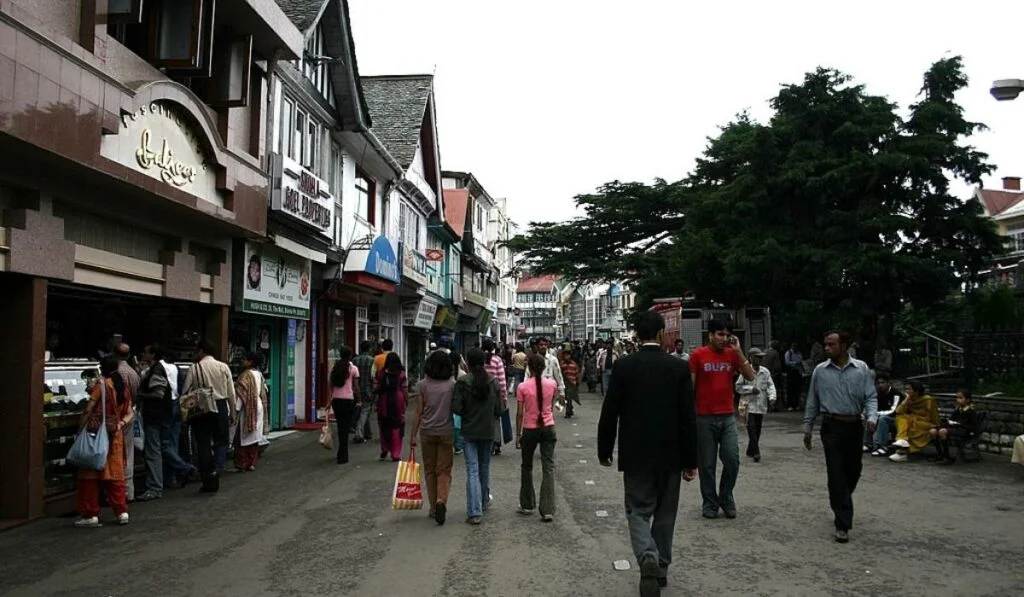
Embark on a delightful shopping spree at The Mall, Shimla’s main street. Lined with restaurants, clubs, banks, and more, it’s the bustling heart of the city. The Gaiety Theatre’s lower part adds a touch of cultural allure.
2. The Sun Ridge:

Stroll along The Ridge, an expansive open space beside Mall Road. Hosting cultural activities, it features the second oldest church in Northern India, Christ Church. The Ridge is also home to the State Library and Gaiety Heritage Cultural Complex.
3. Jakhoo:
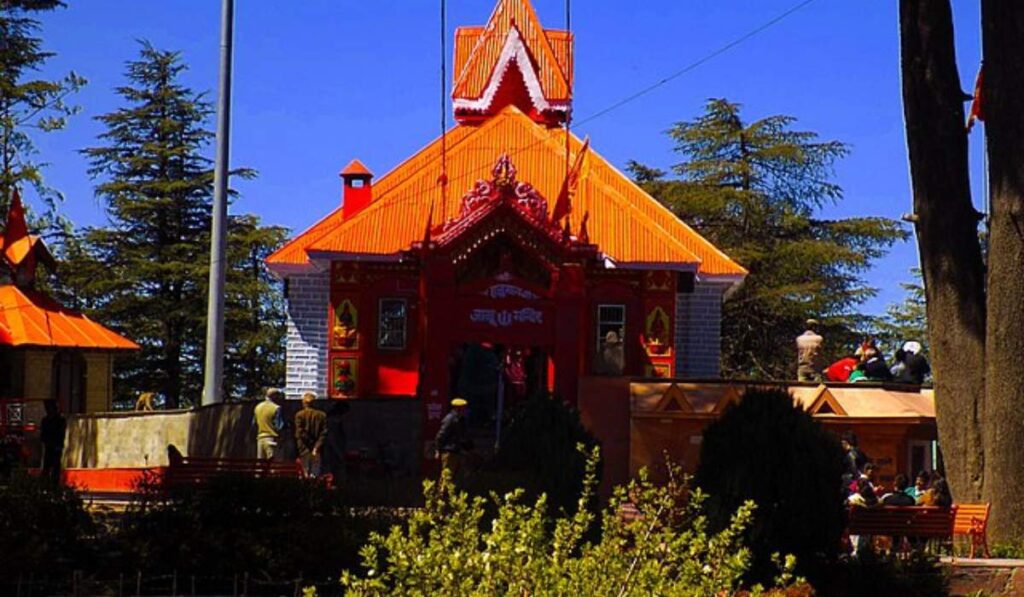
Image Credit: By Rohan1331 – Own work, CC BY-SA 4.0, Link
At 8,000 feet, Jakhoo Hill is the city’s highest point and has the most beautiful views. Visit the old Hanuman temple on top of the hill, which is home to the world’s tallest figure, which is 108 feet tall.
4. Kali Bari:

Explore Kali Bari, a temple dedicated to Goddess Kali’s fearless incarnation, Shyamala. The panoramic views from here include Annandale, Shimla Railway Station, and more.
5. Annandale:
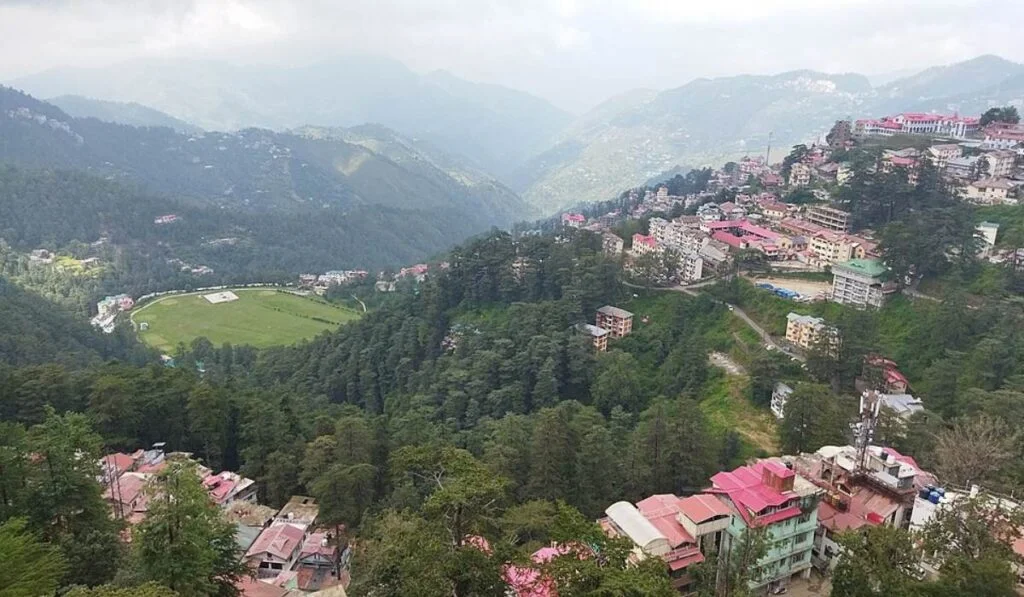
As of 6,117 feet, Annandale is now an Indian Army site. It used to be a racetrack. Its best features are an Army Heritage Museum and a helipad that celebrities and VVIPs love to use. For recreational activities and picturesque landscapes, visit Annandale. With a splendid golf course, cactus museum, and Indian army museum, it remains a popular picnic spot. While the ground is now used as a helipad, visitors still engage in golf, polo, and cricket activities.
6. Indian Institute of Advanced Study:
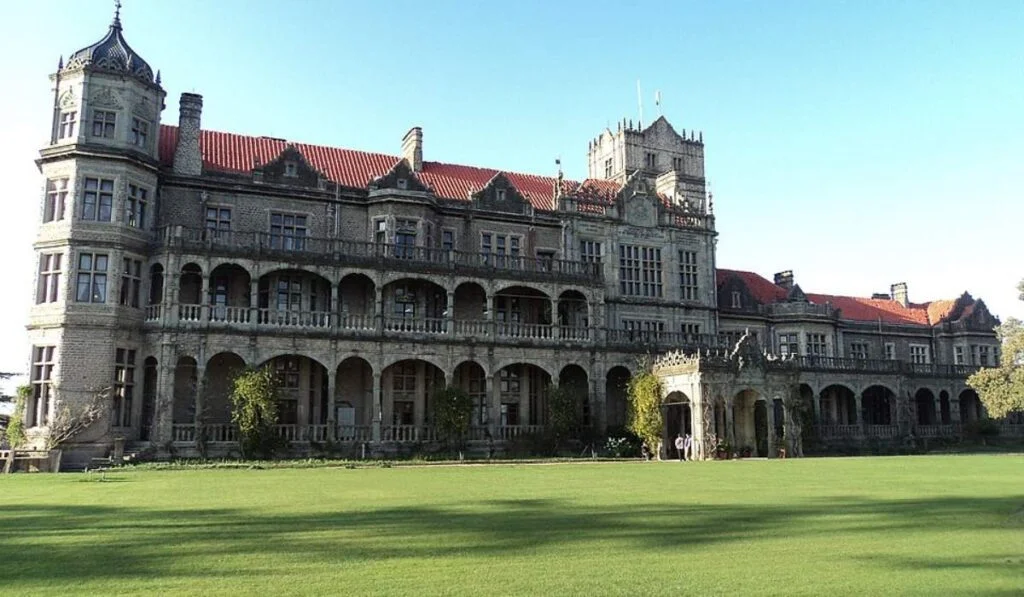
Delve into knowledge at the former Viceregal Lodge, now hosting the Indian Institute of Advanced Study, constructed in 1884–88.
7. Himachal Pradesh State Museum:

Opened in 1974, this museum safeguards the cultural wealth of the state. Explore Pahari paintings, sculptures, bronzes, wood-carvings, and the rich textile heritage.
8. Summer Hill:

Ascend to Summer Hill, a tranquil township at 6,500 ft along the Shimla-Kalka railway line. It once hosted Mahatma Gandhi during his visits, and now houses Himachal Pradesh University.
9. Sankat Mochan:

Visit the famous Hindu temple dedicated to Hanuman, offering spiritual solace amidst the hills.
10. Tara Devi Temple:
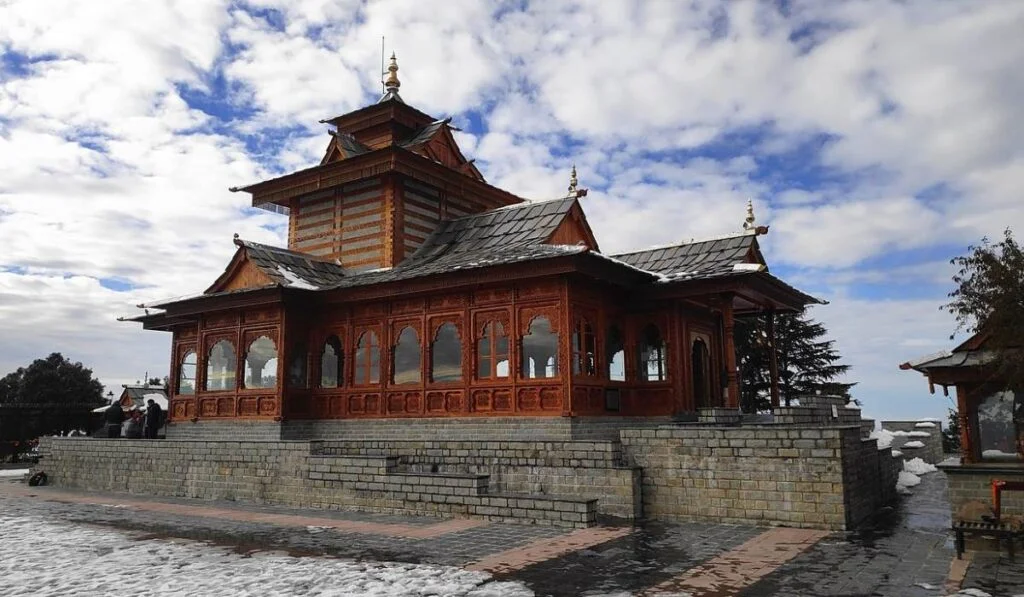
Just 11 km from Shimla’s bus stand, Tara Devi Hill boasts a temple dedicated to the goddess of stars. The area also hosts a military Dairy Town and serves as the headquarters of Bharat Scouts and Guides.
11. Jutogh:
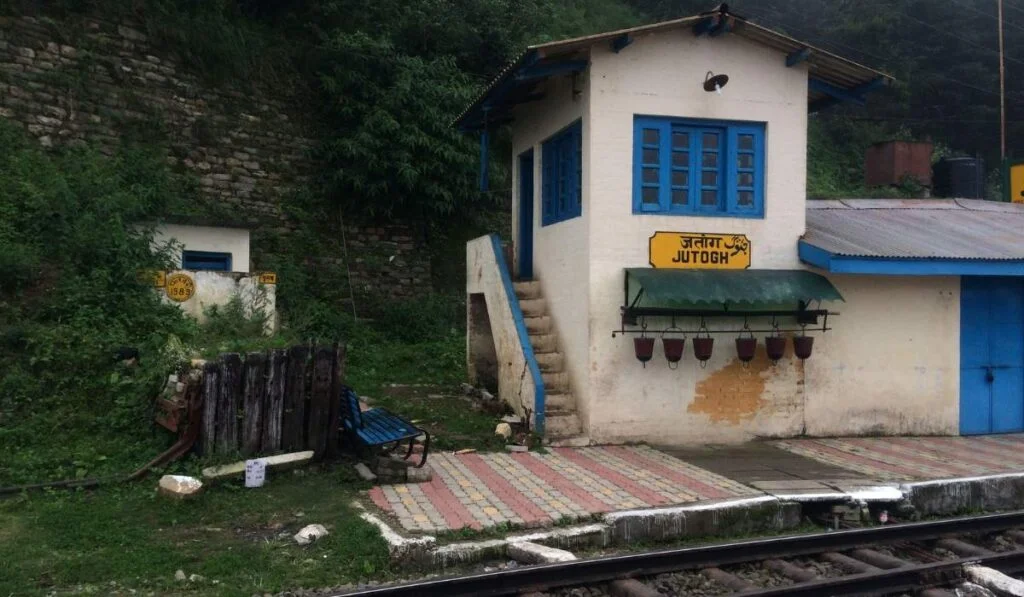
Explore Jutogh, an army cantonment located 8 km from the city center, near Tutu. This important suburb adds a touch of military charm to Shimla’s allure.
12. Green Valley:
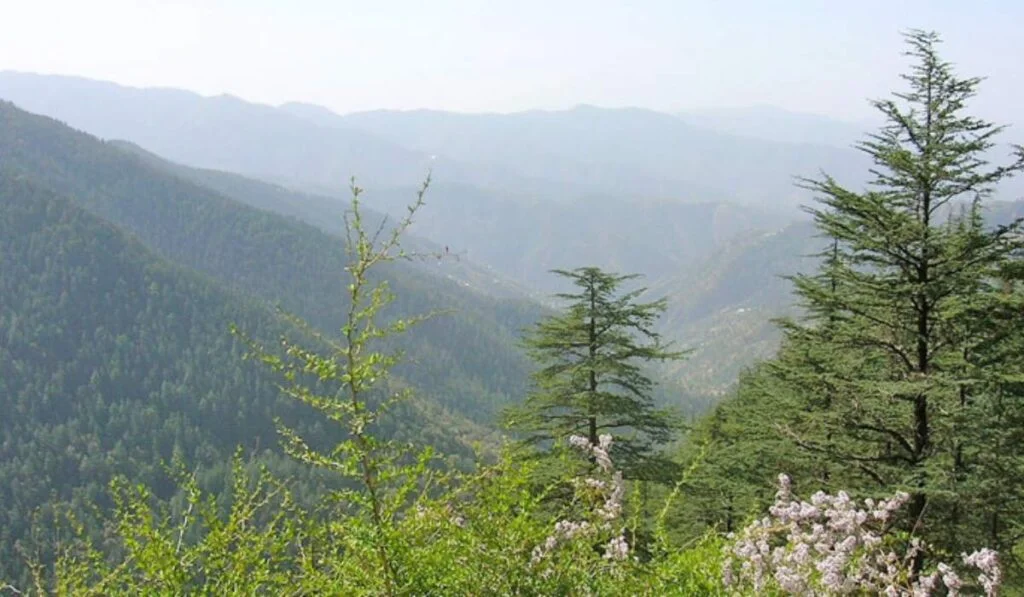
Embark on a journey to the mesmerizing Green Valley, nestled on the way to Kufri from Shimla. Despite being undeveloped for tourism, this picturesque mountain range boasts breathtaking views, dense deodar, and pine trees. Keep an eye out for wandering yaks, adding to the natural charm. Best time to visit is from July to October and February to April.
13. Kufri:

A quaint destination, Kufri, located 20 km from Shimla, captivates with snow-laden peaks, skiing, and a charming zoo. Mahasu Peak and Fagu Valley are must-visit attractions accessible via a delightful pony ride. Don’t miss the thrill of Go-karting on one of the highest tracks globally. Skiing in Kufri will be a thrilling experience. People come from all over the world to ski at Kufri, which is famous for its ski hills and views of snow-covered mountains. The first snow falls during the skiing season, from mid-December to early February. This winter beauty attracts skiers and snowboarders.
14. Kalka Shimla Toy Train:
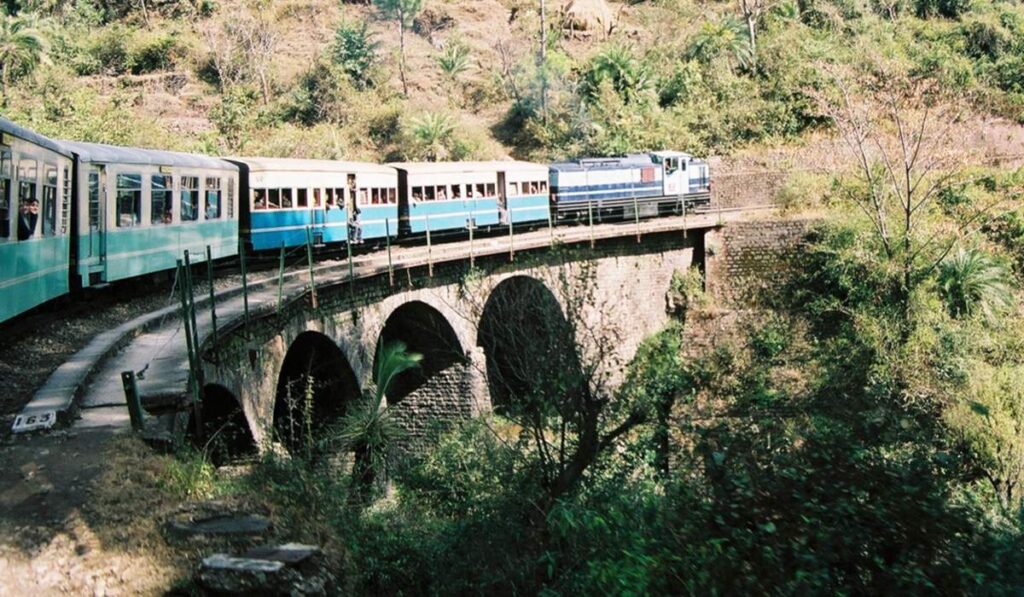
Embark on the delightful Kalka Shimla Toy Train, a UNESCO World Heritage site. This scenic journey takes you through over a hundred tunnels, offering panoramic views of green hills and deodar and pine forests.
15. Scandal Point:

Explore the intriguing Scandal Point on Mall Road, Shimla. Enjoy an unobstructed view of majestic mountains covered in dense fir and spruce. Take a horse ride, savor hot maggi, and indulge in arcade games at this mountain lover’s haven.
16. Chail:

The village of Chail is only 4.4 km from Shimla and is at an elevation of 2,250 m. Chail Palace is the world’s tallest cricket ground, and the area is full of pine and deodar trees, making it a great place to visit, especially for people who like to hike.
17. Viceregal Lodge:
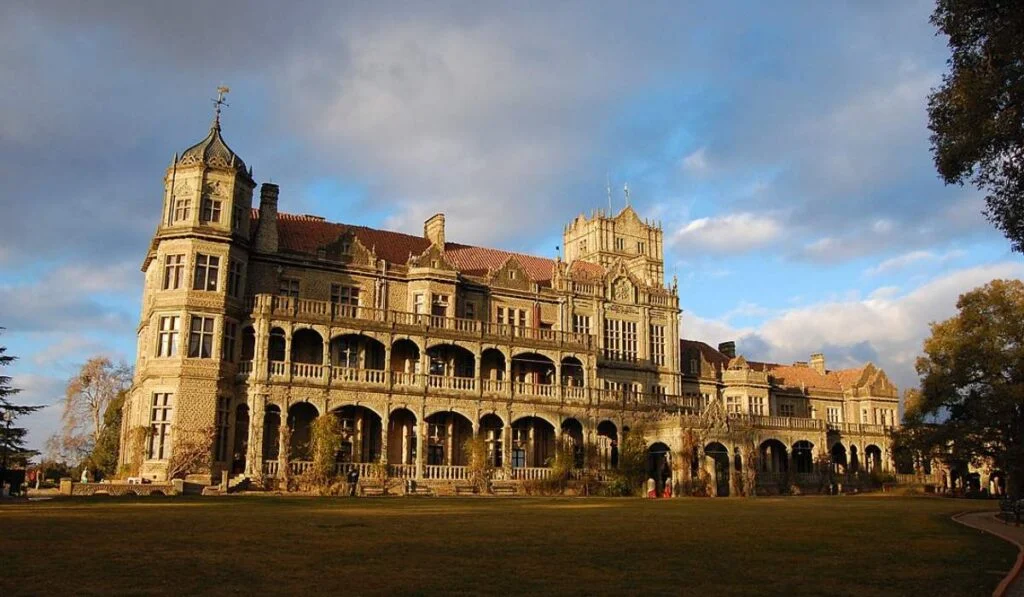
The Viceregal Lodge was built in 1888 and is a place where you can learn about the past. This six-story house in the Scottish Baronial style used to be the home of Lord Dufferin, who was the British Viceroy of India. The name Rashtrapati Niwas comes from the fact that it now holds artifacts and pictures of the British Empire.
18. Christ Church, Shimla:
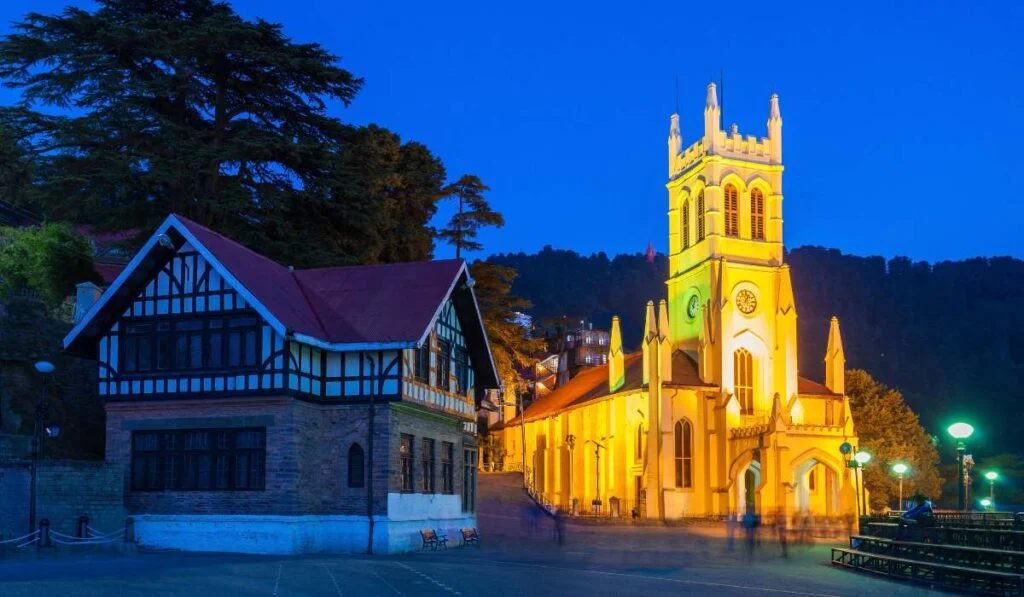
The second oldest church in North India, Christ Church, has beautiful neogothic building that you should check out. The church’s five painted glass windows and bells that ring every hour show Christian values. It’s one of Shimla’s most famous sights and has been used in many Bollywood movies.
19. Himalayan Bird Park:
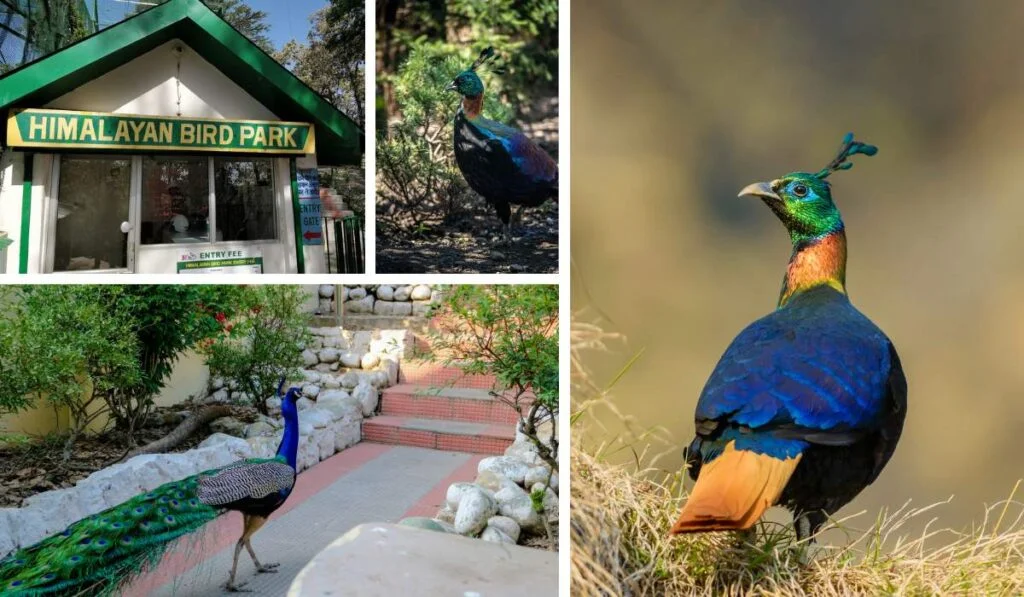
For nature lovers and bird watchers, the Himalayan Bird Park is a must-visit. Located at the heart of the city, it is home to the vibrant Monal Pheasant, Himachal’s former state bird. Immerse yourself in the colorful avian beauty, especially during summers.
20. Chadwick Falls:
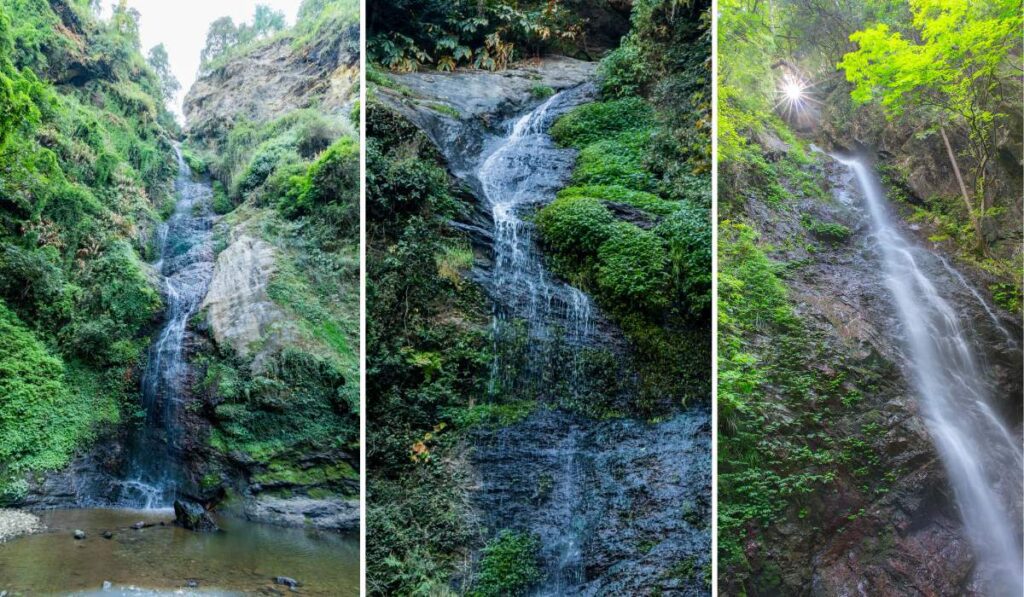
Take a thrilling trip to Chadwick Falls, which drops 100 meters in the dark Glen Forest, 7 km from the city. The falls are beautiful to look at, especially during the rainy season, which runs from June to September. A lot of people bring picnics to the area.
21. Johnnie’s Wax Museum:

This is the first wax museum in Himachal Pradesh. Visit Johnnie’s Wax Museum to learn more about wax. It has more than 15 life-size wax images of famous people from Bollywood and Hollywood, history and politics, and sports.
22. Kiala Forest:
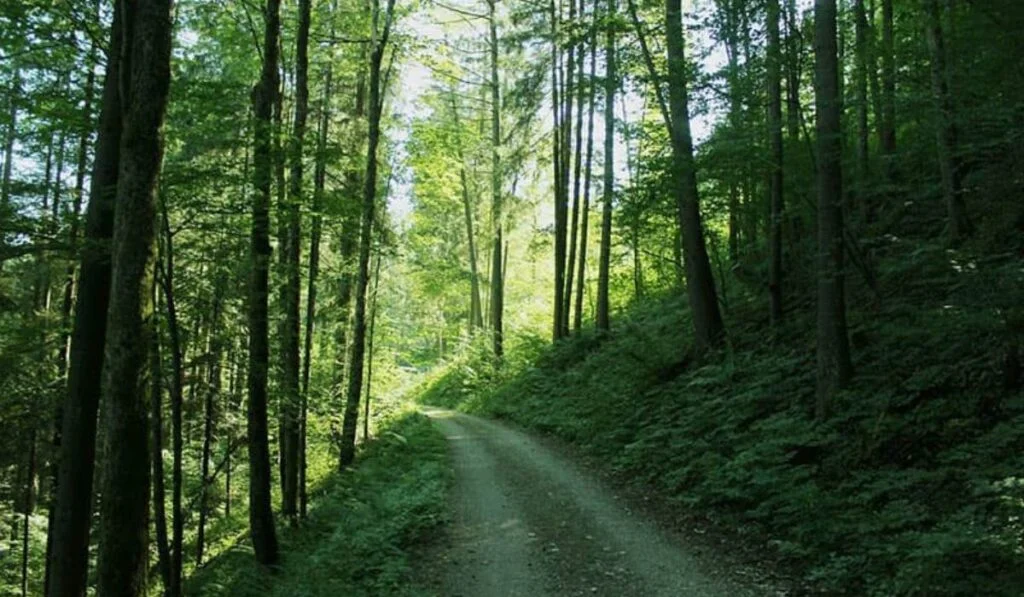
Take a trip to Kiala Forest, which is in the Kotkhai valley near Shimla. It has a lot of different plants and animals, including native animals, so it’s a great place to see leopards. It’s a great place to take pictures of wildlife because there are hiking and walking paths with bathrooms.
23. Narkanda:

Discover the serene town of Narkanda, surrounded by forests and woodlands. Known for skiing in winters, it sits at a height of 9000 feet and entices tourists with its natural beauty and apple orchards.
24. Naldehra:

A small, beautiful hill town called Naldehra is about 22 km away from Shimla. It is known for its lush grass, golf course, and wide views of mountains covered in pine, cedar, and deodar trees. It is a great place for nature lovers to get away.
25. Cafe Simla Times:

Indulge your taste buds at Cafe Simla Times, which is famous for its delicious shakes, gourmet burgers, and wood-fired pizzas. This cute cafe is located in Shimla and is a great spot to unwind, eat, or just take in the beautiful scenery.
26. Rothney Castle:
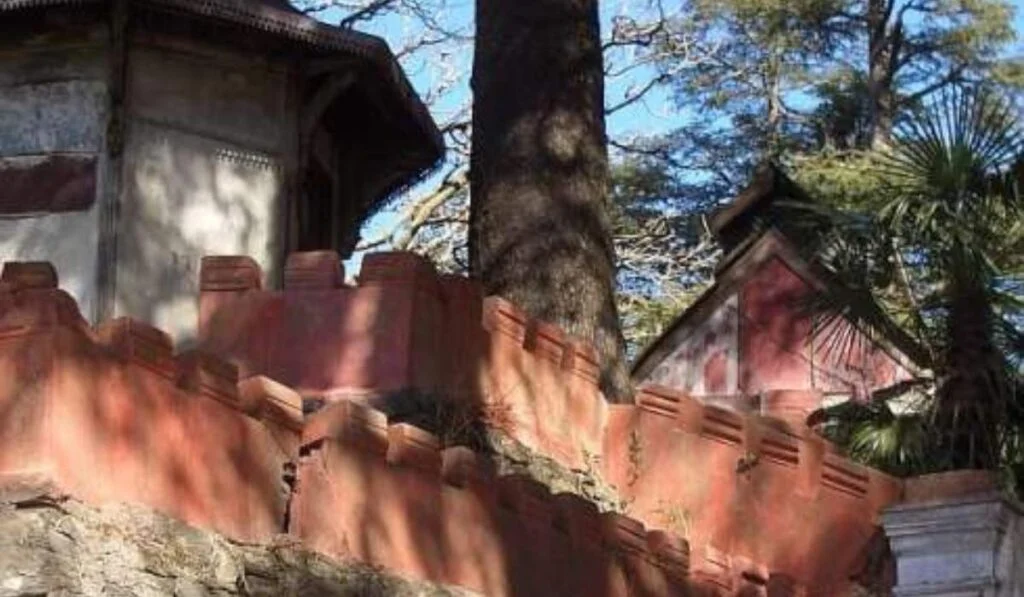
Explore the heritage monument, Rothney Castle, located on Jakhoo Hill. Built-in 1888, it stands on a steep slope amidst lush green natural vegetation. With its historical significance and natural beauty, it’s a treat for history enthusiasts and nature lovers alike.
27. Theog:

Escape the crowd at Theog, a less crowded attraction nestled in the arms of the mighty Himalayas. This quiet retreat, situated in Himachal Pradesh, offers everything a popular hill station does, minus the tourist rush.
28. Shimla Reserve Forest Sanctuary:

For wildlife enthusiasts, the Shimla Reserve Forest Sanctuary is a must-visit. Known for its rare variety of flora and fauna, the sanctuary is home to animals like jackals, barking deer, monkeys, and leopards.
29. Tattapani:
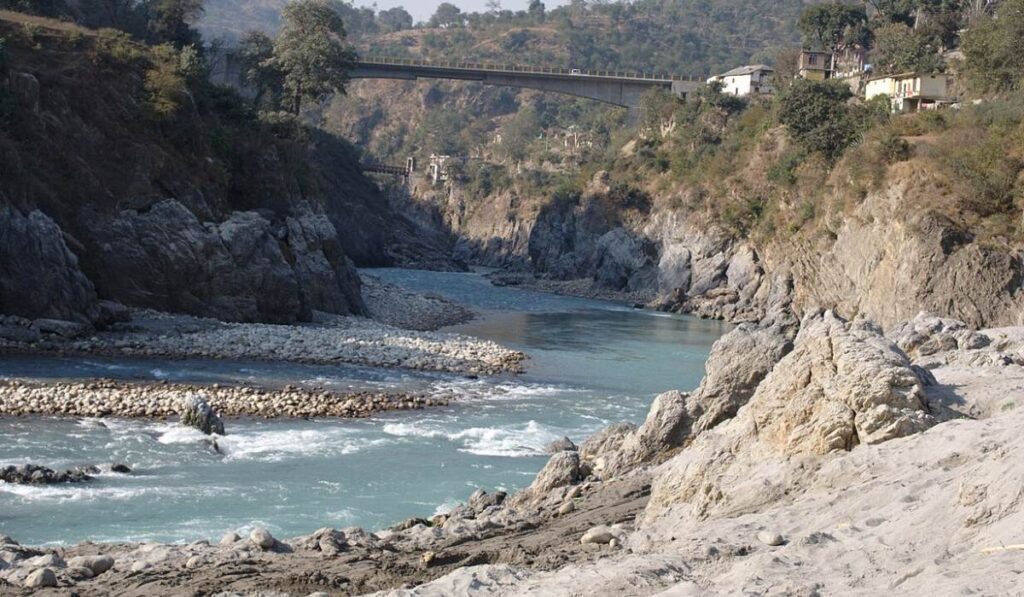
Go on an adventure to Tattapani, a small town that’s 51 km from Shimla. Tattapani is known for its hot water springs that are thought to have healing qualities. Along the banks of the River Sutlej, you can go rafting, Zorbing, skiing, flying, hiking, and camping.
30. Lakkar Bazar:

Take a walk through Lakkar Bazar, which is on the small road next to Shimla’s The Ridge. The market is famous for its wooden decorations, woolens, Pashmina blankets, and handmade goods. It’s a busy place to look for local gifts.
31. Jakhoo Ropeway:

Experience the Jakhoo Ropeway, one of the four major ropeway attractions in the state. Enjoy the scenic views of the Himalayan landscape as the cable car takes you from the bottom of the hill to the top. Known for its vintage British-era architecture, it’s one of the safest ropeways in India.
32. Gaiety Theatre Heritage Cultural Complex:

Step back in time at the Gaiety Theatre Heritage Cultural Complex. Built in the Victorian or Gothic style over a century ago, it holds immense historical and cultural significance. The complex includes a theater, galleries, offices, bar, and ballroom.
33. Gorton Castle:
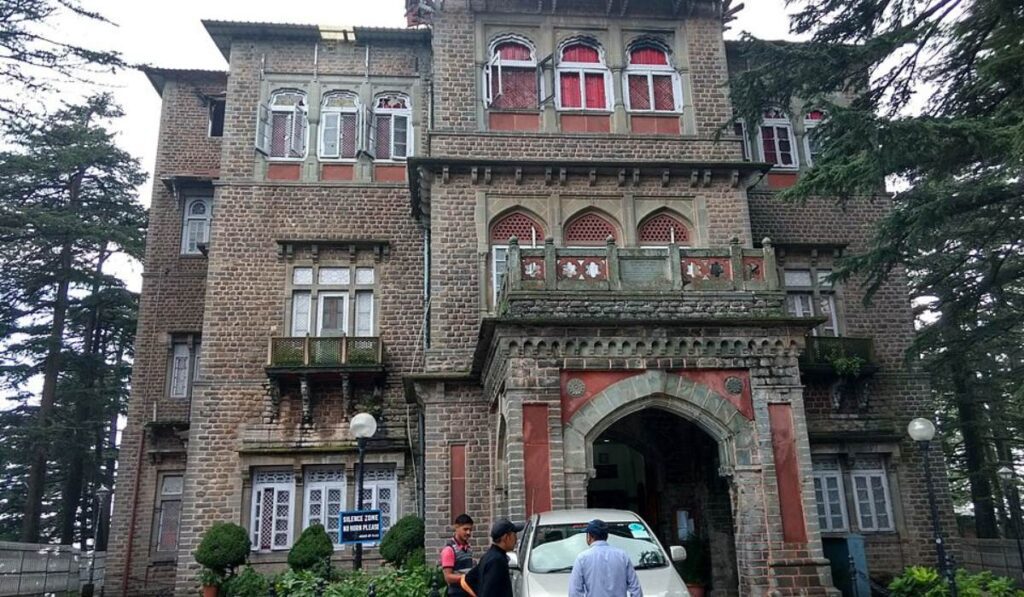
Visit Gorton Castle, a heritage monument over a century old, built during the Colonial era. Today, it serves as the office of the Accountant General of Himachal Pradesh, offering a glimpse into the rich history and heritage of India.
34. Bantony Castle:
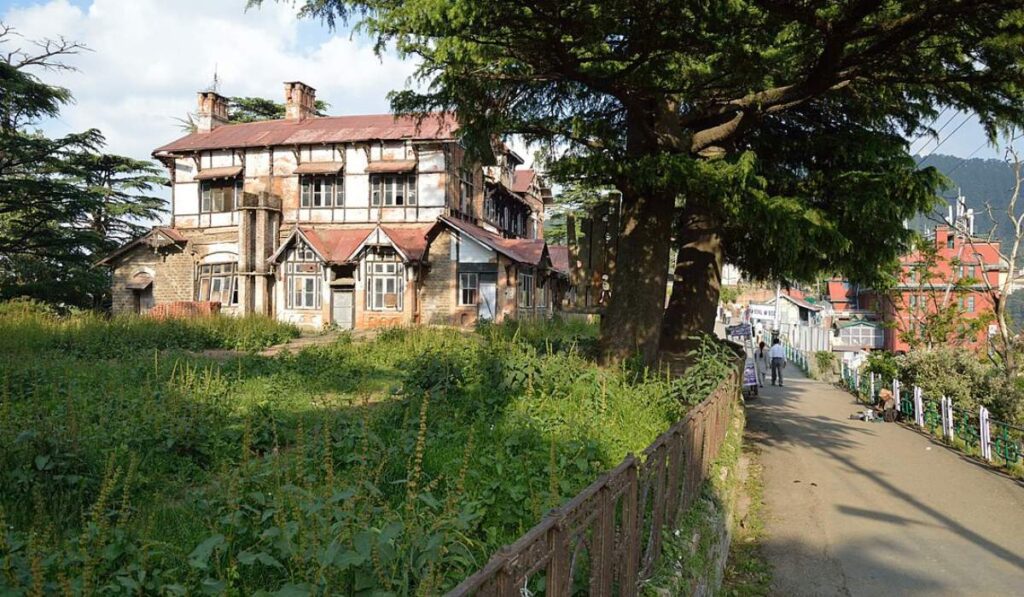
Explore the Bantony estate, a heritage site built during the British era. The estate consists of Bantony Castle and Bantony Cottage, now included in the Shimla Heritage walk for tourists.
35. Gurudwara Sahib:
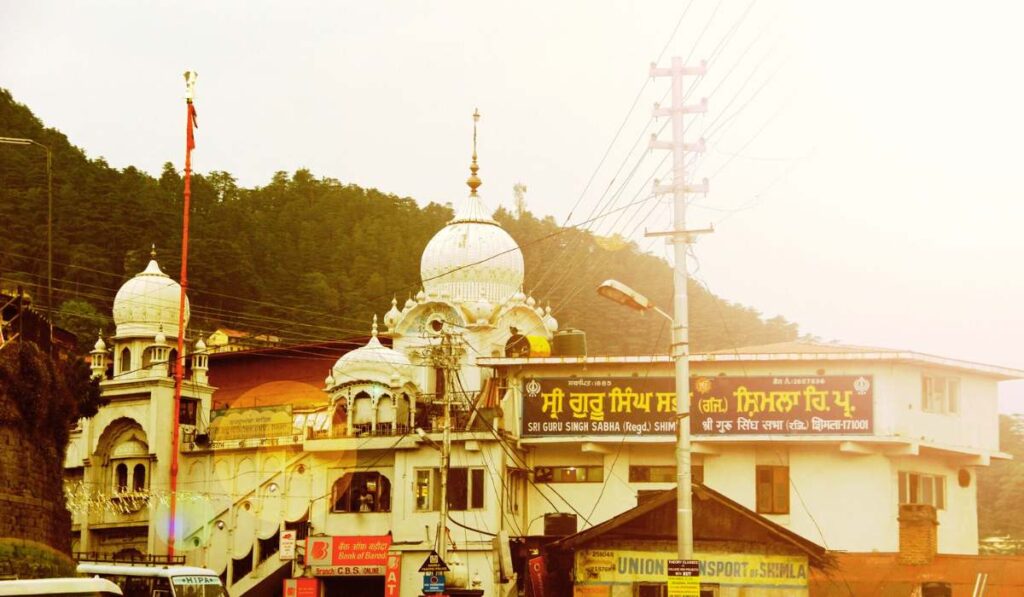
Discover the Gurudwara Sahib at Padhawa hills, constructed in 1907. Known for its exquisite details in the interiors, it’s a must-visit for both devotees and tourists.
36. Pabbar Valley:
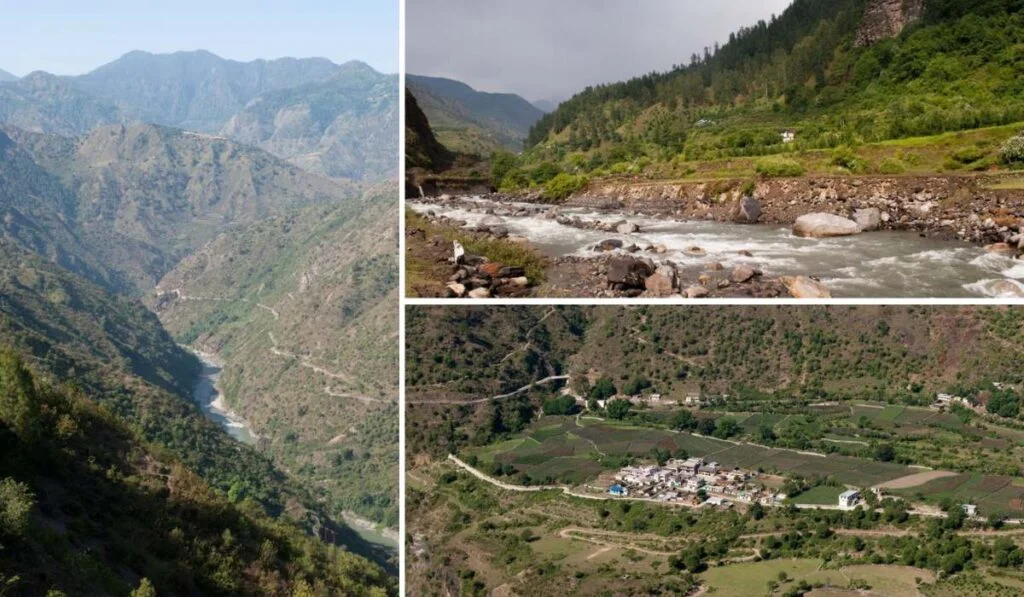
Get ready for a trip to Pabbar Valley, a charming area 80 km from Shimla. The Pabbar River flows through the valley and through the Chanshal Mountain Range. It provides scenic trails and a safe place for hikers to stay.
37. Horse Riding in Shimla:
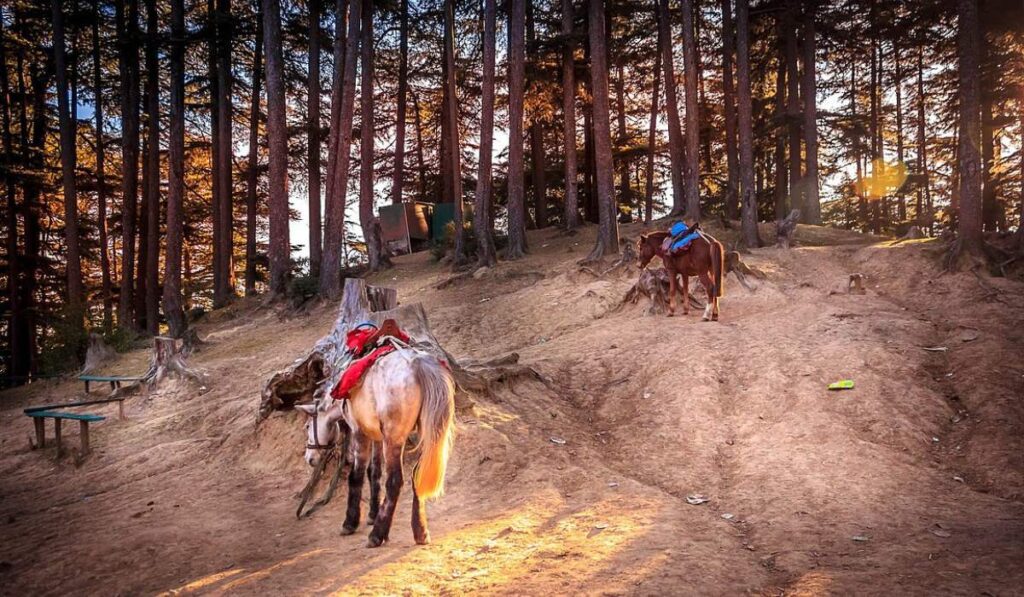
Experience the joy of horse riding, a popular activity in both Shimla and Kufri. In Shimla, horse riding options are generally available at the Ridge.
38. Kasauli:
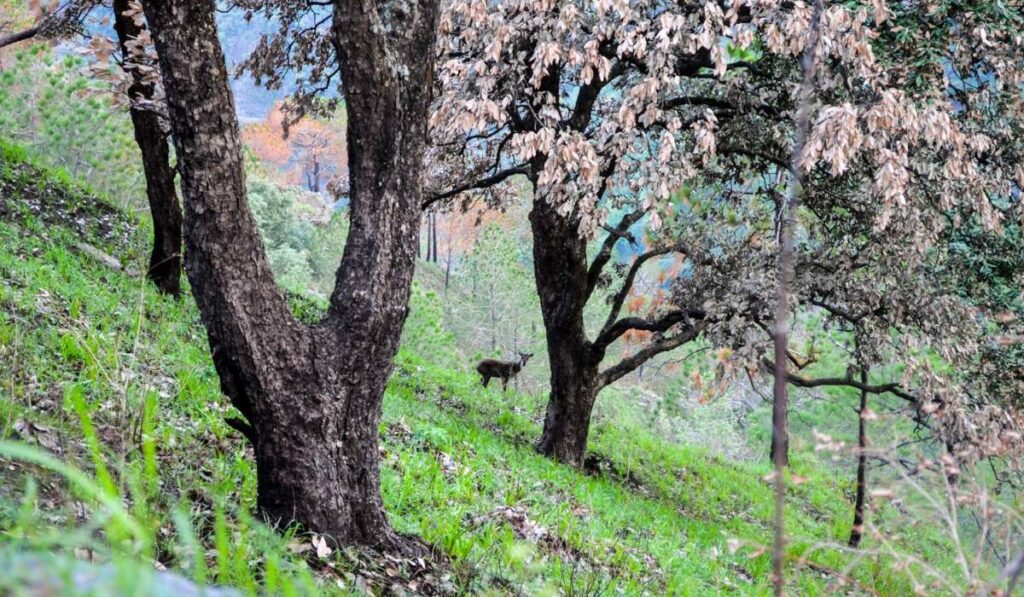
Kasauli is a hilly cantonment town known for its Victorian houses. You can visit it on the way from Chandigarh to Shimla. Kasauli is a peaceful retreat in the middle of dense woods, making it a great place to spend the weekend.
39. Naggar Castle:

Naggar Castle was built in 1460 A.D., so you can enjoy its antique design. It is a one-of-a-kind mix of Western and Himalayan styles and is in Kullu. It gives you a look into the past now that it has been turned into a historical hotel.
40. Solan:
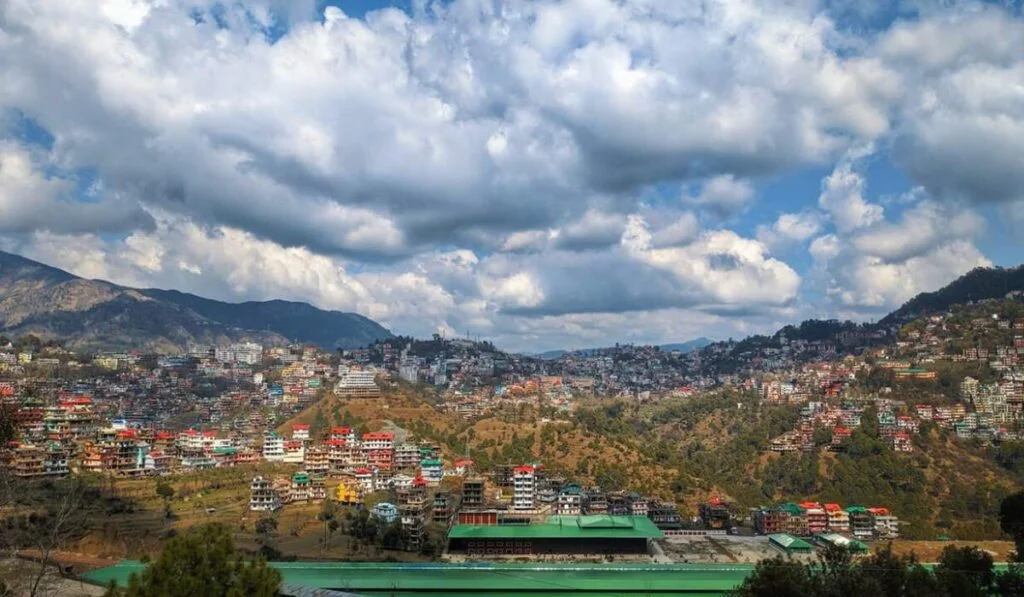
For a low-key hill station experience, visit Solan. Known for ancient temples and monasteries, it provides a peaceful retreat away from the city rush.
41. Mashobra:

Escape to Mashobra, a less explored town just 10 km from Shimla. With enough resorts and enchanting natural beauty, it offers a perfect setting for a lazy weekend outing or a longer vacation.
42. Fagu:
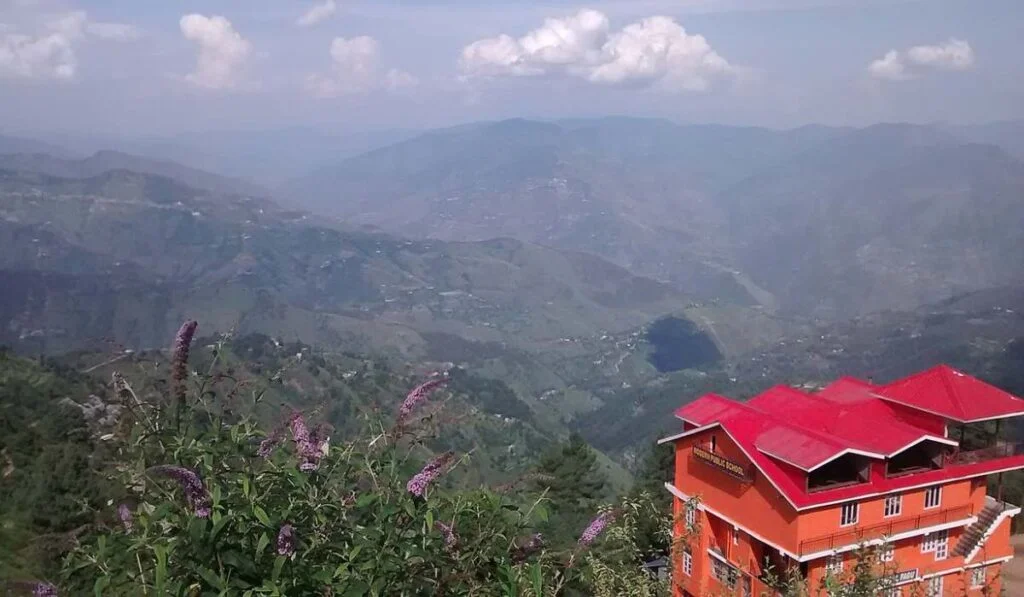
Situated at an elevation of 2500 meters, Fagu is a serene snow-clad hamlet, known for its apple plantations and secluded ambiance. A haven for honeymooners, trekkers, and naturalists alike.
43. Shoghi:
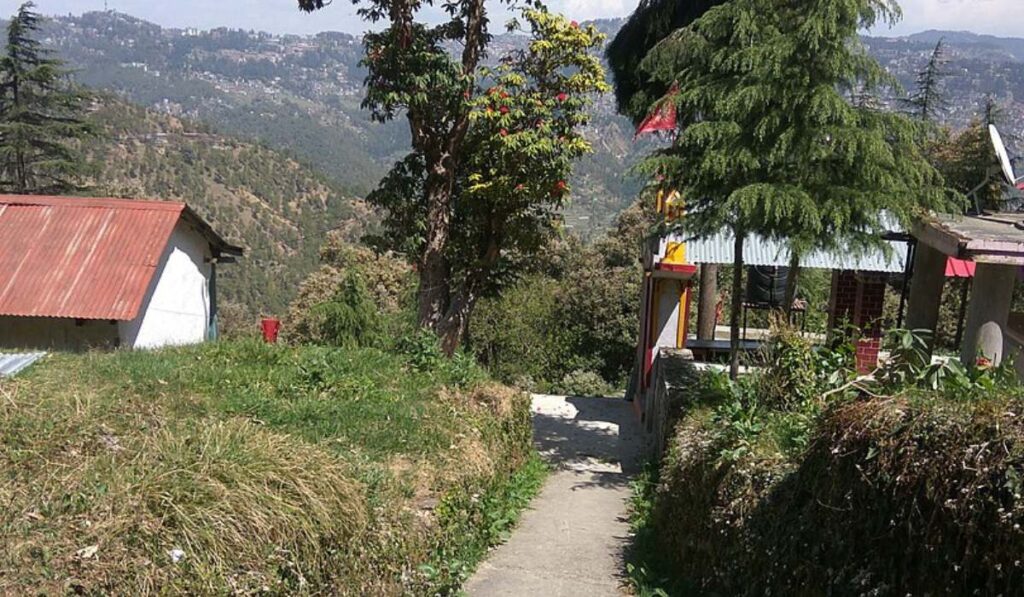
Explore the serene beauty of Shoghi, a small hill station 13 km from Shimla. Abundant in natural scenic beauty, it offers a tranquil escape from the hustle and bustle.
44. Ice Skating in Shimla:

At the Shimla Ice Skating Rink, you can enjoy the popular sport of ice skating. With its stunning views of the Himalayas, it is the biggest naturally made pool in South Asia. It’s popular with both locals and tourists.
45. Wake & Bake:

Savor the delights of Wake & Bake, a famous cafe in Shimla. Known for world-class coffee, pancakes, bacon, and surreal panoramic views, it’s a perfect stop for a delicious breakfast.
46. Cafe Hide Out:
Experience the cozy ambiance of Cafe Hideout, another popular cafe in Shimla. Offering delicious snacks and coffee at affordable rates, it’s a must-visit while exploring the city.
47. Wild Flower Hall Hotel:
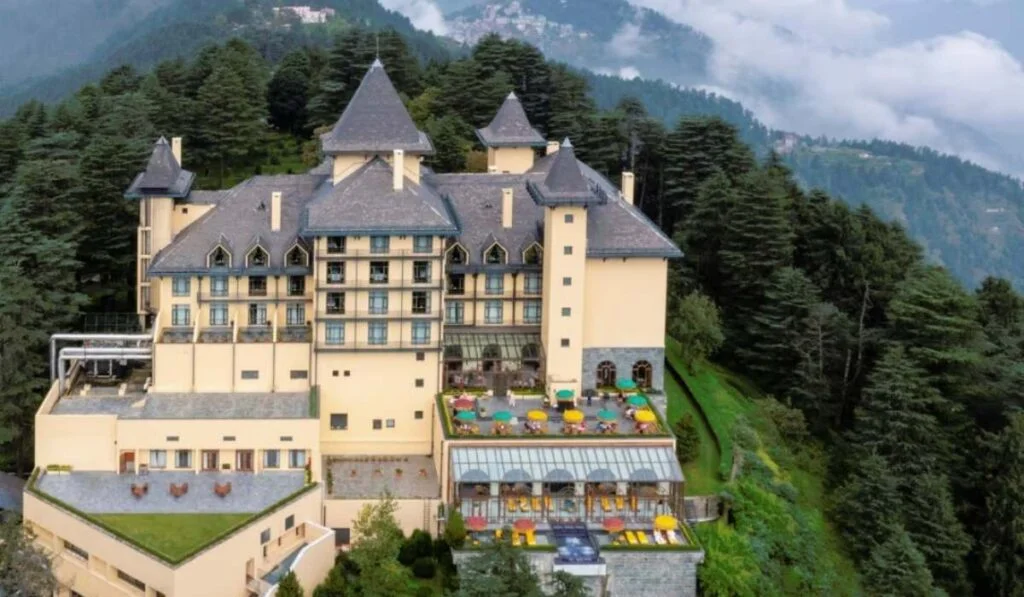
The Wild Flower Hall Hotel is a heritage building because it was originally built as Lord Kitchener’s home. It was rebuilt after a fire in 1993 and is now a luxury place to relax in the middle of nature.
48. Retreat Building:
You can see the President of India’s official vacation home, the vacation Building in Chharabra. It was built in 1850 and shows off colonial-era buildings and natural beauty.
49. Shimla Heritage Walk:
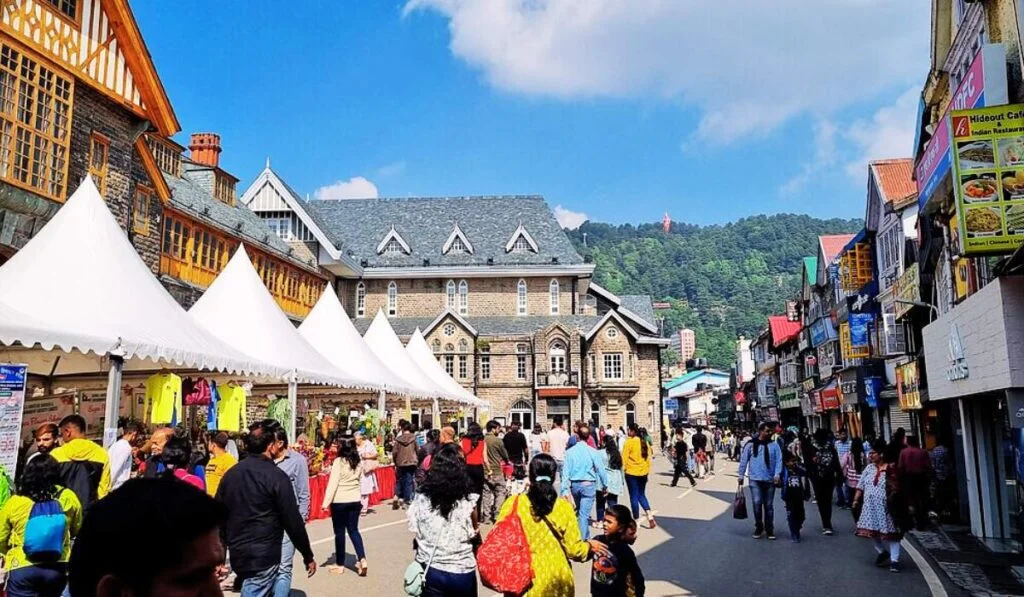
You can start the Shimla Heritage Walk, a guided walk of the city’s culture hubs, historical sites, and royal buildings.
By going to these hidden gems and well-known spots near Shimla, you can fully experience the area’s long history, beautiful nature, and broad range of cultures. Shimla is a great place to visit whether you want to have fun, relax, or learn about other cultures.
Immerse yourself in the beauty and peace of the Himalayas by visiting these secret gems near Shimla. Shimla is a wonderful place to visit because it has a lot of history, culture, and natural beauty.
Must-Know Tips Before You Travel to Shimla
If you want to go to Shimla, you should know about its car-free Mall Road, get a skilled driver for the hills, and enjoy its historical sites. Keep these things in mind before you go to Shimla:
- No Vehicles on Mall Road: Vehicles are a no-go on the Mall Road, but don’t worry; there’s convenient car parking available within walking distance.
- Lift Facility on Mall Road: Need to ascend from the lower mall road to the upper mall road? Opt for the lift facility at just INR 10 per person, operational from 8:00 AM to 9:00 PM.
- Expert Driver for Hilly Roads: Shimla is very hilly, so it’s best to hire a skilled driver to help you get around easily on the narrow roads.
- Respect Temple Photography Rules: While exploring temples, remember that photography is usually not allowed. To be sure, it’s always a good idea to ask before clicking those pictures.
- Foot Journey for Hilltop Attractions: Kali Bari Temple and Green Valley are two attractions that are up on hills and need a short hike to get to them. If you have health problems, you should be careful and make plans properly.
- Ropeway to Jakhu Temple: Heading to Jakhu Temple? Enjoy a hassle-free journey with the ropeway or cable car. Tickets are available, and children under three often ride for free.
Before you start your trip to Shimla, remember these helpful tips. These tips will help you have a better trip, whether you’re walking along Mall Road, going to churches, or climbing hills to see sights. Be careful on your trip, and enjoy your time in Shimla!
Practical Information for Travelers
- Best Time to Visit: October to November and April to June
- Altitude: 2202.00 meters above sea level
- Languages: Pahari, Hindi, and English
- How to Reach: While there is an air service, traveling by road offers a scenic journey through the Himalayan countryside.
How to Reach Shimla?
Planning a trip to the enchanting hills of Shimla? Here’s your go-to guide on how to reach this picturesque destination hassle-free. From road trips to scenic train journeys, we have got you covered.
1. By Road:
Shimla is easily accessible by road, offering stunning views along the way. The Chandigarh-Shimla highway is in excellent condition, making it a smooth 3.5-hour drive from Chandigarh. Check out the most frequently searched routes:
- Chandigarh to Shimla: 114 km, 3 hours 24 mins
- Delhi to Shimla: 344 km, 6 hours 44 mins
- Manali to Shimla: 247 km, 6 hours 41 mins
2. By Air:
If you prefer the skies, the Jubbarhatti Airport is the nearest, just 25 km from Shimla. However, it has limited flights, so consider flying into Chandigarh Airport (IXC), which is 60 km away. From Chandigarh or Delhi, a 3-4 hour cab ride or regular buses will get you to Shimla.
3. By Train:
For a scenic train journey, head to the Kalka Railway Station, 90 km from Shimla. Enjoy the breathtaking views during the 5-6 hour ride. Alternatively, Chandigarh Railway Station (113 km away) is another option. Local buses and cabs await your arrival in Shimla.
Local Transport in Shimla:
It’s easy to get around Shimla once you get there. Local buses run on the Ring Road from 7 AM to 9 PM, making it a reasonable choice. You can easily get a private cab, and Himachal Pradesh Tourism offers special buses for tours in the area.
Pro Tips for Local Exploration:
- Walk to popular spots like Mall, Ridge, and Kali Bari, as they are no-vehicle zones.
- The HP Tourism lift makes it easy to get from Cart Road to the Mall, going from Shimla’s highest point to its lowest point.
No matter if you want to take the beautiful train route, the easy flight route, or the open road trip route, Shimla is ready for you. Get your bags ready for a trip you’ll never forget!
(Note: The content adheres to the provided guidelines, maintaining simplicity and user-friendly language.)
Food Delights in Shimla
Shimla is in the middle of a beautiful hill town and has a wide range of delicious food options. The city has a wide range of restaurants, from cozy local spots to high-end fine eating. The local Pahari food has changed to suit the tastes of the many tourists who come to the area, but there are still many eating choices.
Top Restaurants in Shimla:
1. Ashiana
- Location: Ridge, The Mall, Longwood
- Cuisine: Continental
- Timings: 8 AM to 11 PM
- Cost: INR 2200
2. Cafe Sol
- Location: The Mall, Next to the Tourist Lift
- Cuisine: Italian, Mexican, Mediterranean
- Timings: 11 AM to 10:30 PM
- Cost: INR 250-300 for Two
3. Cecil Restaurant
- Location: The Oberoi Cecil, Nabha, State Museum Road, Longwood
- Cuisine: North Indian, Continental
- Timings: 7 AM to 10:30 AM, 12:30 PM to 2:30 PM, 7:30 PM to 10:30 PM
- Cost: INR 2200
4. Wake & Bake
- Location: 34/2, The Mall Shimla, Teh. & Distt, Shimla Municipal Corporation, Summer Hill, Shimla
- Cuisine: Cafe
- Timings: 9:30 AM to 10 PM
- Cost: INR 800
5. Indian Coffee House
- Location: 1, The, Mall Rd, Lower Bazar, Shimla, Himachal Pradesh
- Cuisine: Fast Food, Beverages
- Timings: 8 AM to 10 PM
- Cost: INR 350
6. Café Simla Times
- Location: The Mall Road, Shimla
- Cuisine: Cafe, Bakery, Bar
- Timings: 12 PM to 11 AM
- Cost: INR 500 for Two
Additional Recommendations:
7. Himachali Rasoi
- Location: 54, Middle Bazar, Down From The Fire Station Stairs, The Mall, Summer Hill, Shimla
- Cuisine: Fast Food
- Timings: 10 AM to 10 PM
- Cost: INR 500
8. EBR Cafe
- Location: Near GSSS Bhattakuffar School Ground, Sanjauli, Shimla
- Cuisine: Mexican, Italian, Cafe
- Timings: 10:30 AM to 9 PM
- Cost: INR 500
Food in Shimla is very good, and each bite tells a story about how the town has been cooking for a long time. You’ll have a great time eating in Shimla, whether you go to Ashiana for delicious Continental food or Wake & Bake for a cozy setting.
Conclusion
Finally, when you plan your trip to Shimla, think about how well the natural beauty and history of the city will go together. Shimla is a place you’ll never forget because of its beautiful scenery and nice weather. Shimla has something for everyone who comes to visit, whether they want to see royal buildings, eat tasty food, or just take it easy and enjoy the peace. Don’t forget that this cute town is a must-see because every part of it has its charm. There is a beautiful meeting of the past and present in Shimla. Amidst the Himalayas, create enduring memories with Shimla Tourism. You can make memories that will last a lifetime there in the Himalayas. You can visit Shimla and take an endless journey through history and nature.
Frequently Asked Questions About Shimla
Shimla gained prominence in 1864 when it was declared the summer capital of India. Post-independence, it became the capital of Himachal Pradesh. Blessed with natural beauty, Shimla captivates visitors with its scenic allure.
The ideal times to visit Shimla are May to June and December to January, when the charm of romance and beauty pervades every corner.
Manali is renowned for skiing, snowboarding, paragliding, and trekking. In contrast, Shimla offers adventures like zip-lining, hiking, rock climbing, and forest camping.
The best season for snow in Shimla is winter, from November to February, with snowfall occurring from late December to February
Yes, Shimla has witnessed a surge in crowds, comparable to metropolitan cities like Delhi or Mumbai, as tourists flock from various parts of India.
The cost of living in Shimla is lower than in Delhi. To maintain the same standard of living, you’d need around ₹10,310.7 in Shimla compared to ₹14,000.0 in Delhi.
The nearest airport is Chandigarh Airport, approximately 120 km from Shimla. Travelers can reach Shimla from Chandigarh by road.
The recommended way is to take a cab to Kufri, a journey that takes around 48 minutes. Various taxi services like Waah Taxis are available.
Shimla, Himachal Pradesh, is renowned for its apples.

